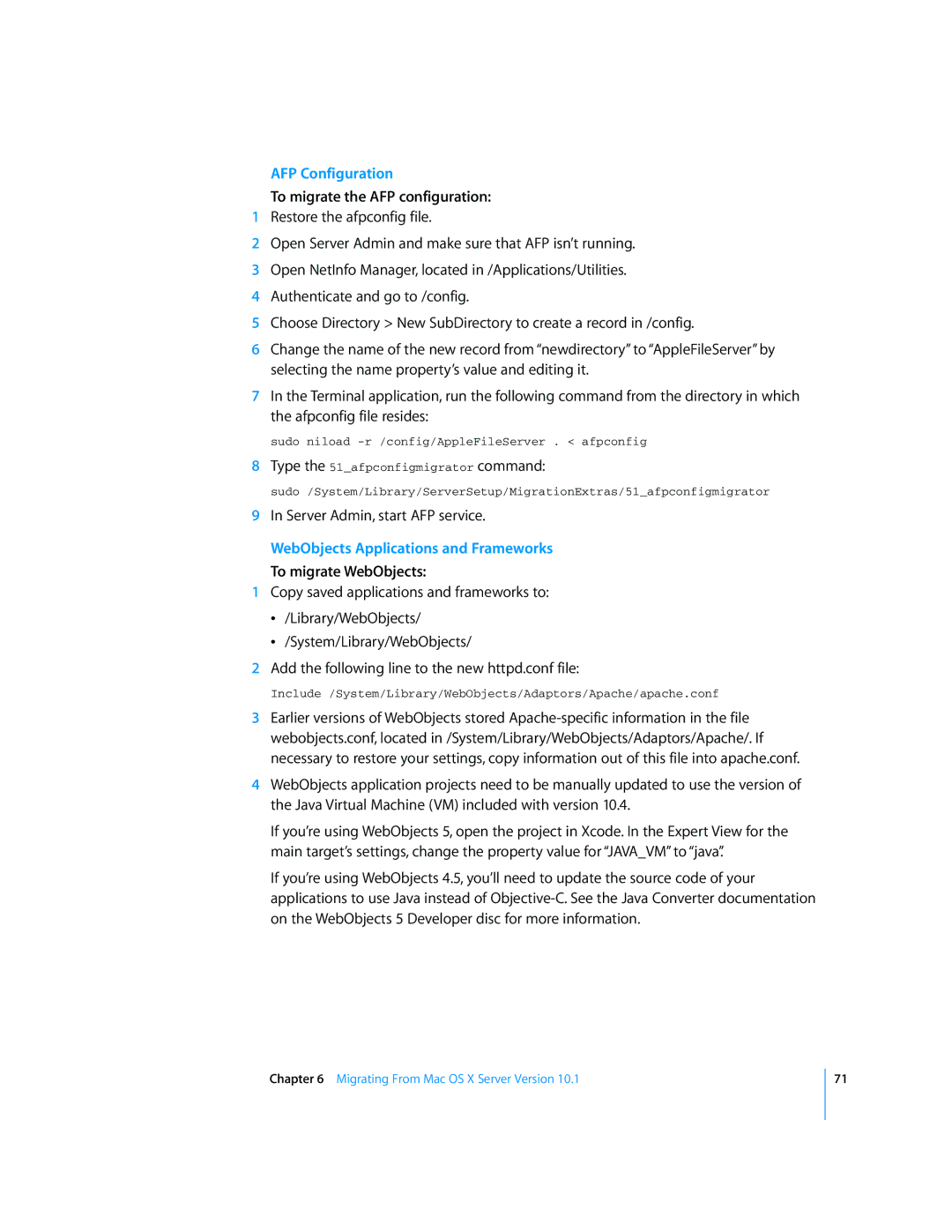AFP Configuration
To migrate the AFP configuration:
1Restore the afpconfig file.
2Open Server Admin and make sure that AFP isn’t running.
3Open NetInfo Manager, located in /Applications/Utilities.
4Authenticate and go to /config.
5Choose Directory > New SubDirectory to create a record in /config.
6Change the name of the new record from “newdirectory” to “AppleFileServer” by selecting the name property’s value and editing it.
7In the Terminal application, run the following command from the directory in which the afpconfig file resides:
sudo niload
8Type the 51_afpconfigmigrator command:
sudo /System/Library/ServerSetup/MigrationExtras/51_afpconfigmigrator
9In Server Admin, start AFP service.
WebObjects Applications and Frameworks
To migrate WebObjects:
1Copy saved applications and frameworks to:
Â/Library/WebObjects/
Â/System/Library/WebObjects/
2Add the following line to the new httpd.conf file:
Include /System/Library/WebObjects/Adaptors/Apache/apache.conf
3Earlier versions of WebObjects stored
4WebObjects application projects need to be manually updated to use the version of the Java Virtual Machine (VM) included with version 10.4.
If you’re using WebObjects 5, open the project in Xcode. In the Expert View for the main target’s settings, change the property value for “JAVA_VM” to “java”.
If you’re using WebObjects 4.5, you’ll need to update the source code of your applications to use Java instead of
Chapter 6 Migrating From Mac OS X Server Version 10.1
71
